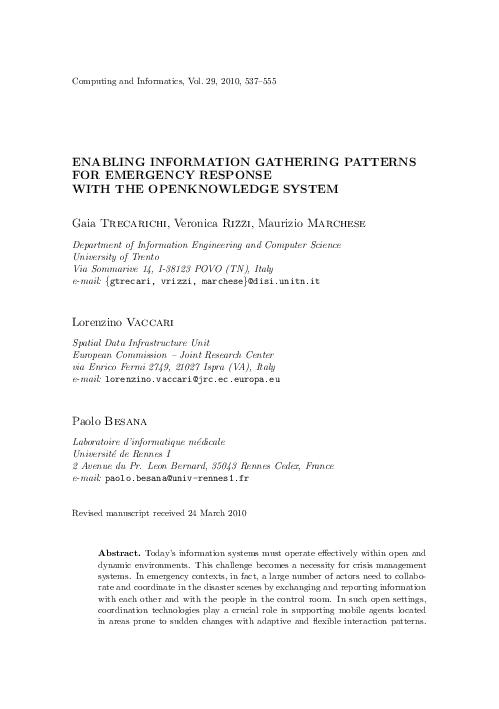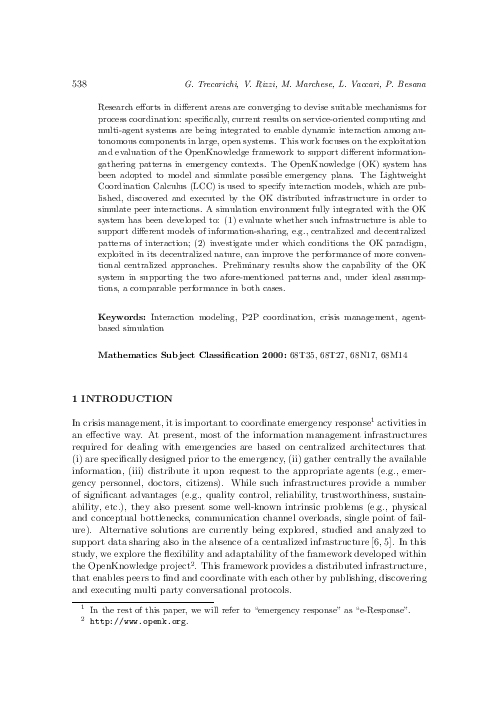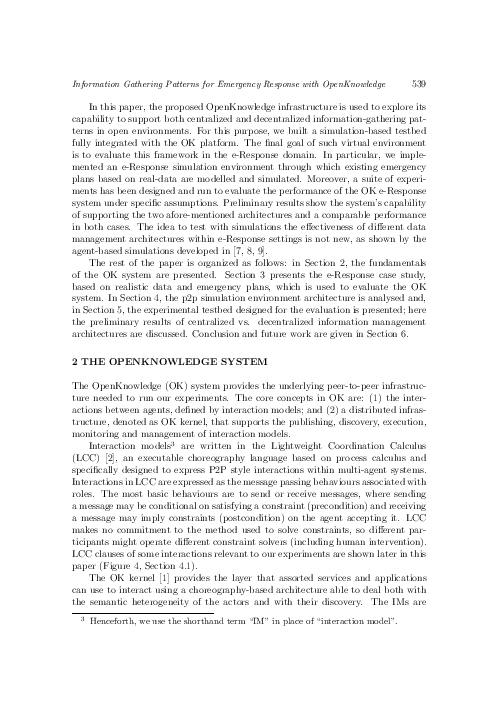Enabling Information Gathering Patterns for Emergency Response with the OpenKnowledge System
keywords: Interaction modeling, P2P coordination, crisis management, agent-based simulation
Today's information systems must operate effectively within open and dynamic environments. This challenge becomes a necessity for crisis management systems. In emergency contexts, in fact, a large number of actors need to collaborate and coordinate in the disaster scenes by exchanging and reporting information with each other and with the people in the control room. In such open settings, coordination technologies play a crucial role in supporting mobile agents located in areas prone to sudden changes with adaptive and flexible interaction patterns. Research efforts in different areas are converging to devise suitable mechanisms for process coordination: specifically, current results on service-oriented computing and multi-agent systems are being integrated to enable dynamic interaction among autonomous components in large, open systems. This work focuses on the exploitation and evaluation of the OpenKnowledge framework to support different information-gathering patterns in emergency contexts. The OpenKnowledge (OK) system has been adopted to model and simulate possible emergency plans. The Lightweight Coordination Calculus (LCC) is used to specify interaction models, which are published, discovered and executed by the OK distributed infrastructure in order to simulate peer interactions. A simulation environment fully integrated with the OK system has been developed to: (1) evaluate whether such infrastructure is able to support different models of information-sharing, e.g., centralized and decentralized patterns of interaction; (2) investigate under which conditions the OK paradigm, exploited in its decentralized nature, can improve the performance of more conventional centralized approaches. Preliminary results show the capability of the OK system in supporting the two afore-mentioned patterns and, under ideal assumptions, a comparable performance in both cases.
mathematics subject classification 2000: 68T35, 68T27, 68N17, 68M14
reference: Vol. 29, 2010, No. 4, pp. 537–555


